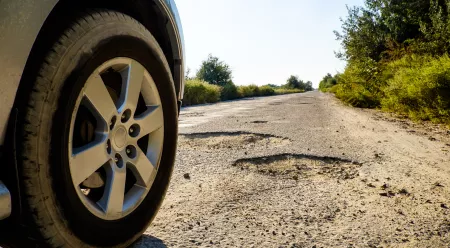Compare and purchase
Canada's best rv/trailer insurance.
Types of travel trailers we insure

5th wheel trailers

Campers

Tent Trailers

Pop-up hybrids

Truck campers

Park models
RV/Travel Trailer insurance
Going on vacation with an RV, or travel trailer, is gaining in popularity from weekend trips to treks across the country, more and more Canadians are hitting the open road in an RV. With most focused on the adventure ahead, some are not planning for worst-case scenarios and not thinking of getting RV insurance to stay protected during their travels. RV insurance coverage can be compared to having auto, home and travel insurance all rolled into one!.
Do you need help finding the right boat insurance policy for your watercraft? Don’t hesitate to reach out to a Surex insurance advisor today! At Surex, our top priority is helping you save on insurance, including boat insurance in Canada. So, instead of picking the first product that you find, shop with Surex to find the best deals!
An RV is a motor vehicle that includes living quarters, designed for accommodation that allows people to drive and stay at different places to explore and enjoy the outdoors. There are many different types of RV's that include: motorhomes, campervans, caravans, fifth-wheel trailers, pop-up campers, and truck campers. A large number of Canadians love camping and staying at national or provincial parks and campgrounds. Talk to a Surex Advisor about what you may need before hitting the road.
Compare 10+ Quotes +
Speak to a Dedicated Advisor
Licensed Insurance Advisor

RV/Trailer Insurance FAQs
Most auto insurance policies cover trailers, but usually only for third party liability. In other words, you would be covered for any injury to another person or damage to their property. We suggest however, to add to your policy, as your policy would not pay out if your own trailer or RV was damaged in an accident that was your fault.
This really can depend, however as you start to think how much premiums for trailer insurance cost, also take into account the following data on the retail prices of some common types of trailers -
On average:
Utility trailers: $200 to $8,000. Snowmobile trailers: $500 to $100,000. Boat and personal watercraft trailers: $700 to $5,000.
Sometimes, your home and or car policies may provide some coverage, but it's always good to double check to find out directly from the where you are renting from or check with your Surex Advisor.
As we said before, coverage options are different in each province, but here is what a standard RV and motorhome insurance policy would cover:
- Third-party liability: This covers any third-party injuries, damages and deaths
- Accident benefits: This covers your medical and rehabilitation bills, funeral expenses and provides loss of income benefits.
- Direct compensation property damage (DCPD): This covers damages to your RV vehicle and any personal property that is inside.
Similar to the mandatory protection you would get with your auto insurance, the mandatory protection you should get with your RV/travel trailer or motor home are: third-party liability, direct compensation, accident benefits, and uninsured and unidentified automobile insurance coverage.
You can talk to your insurance advisor and see what you need to get you on the road today!
RV insurance coverage is comparable to having auto, home and travel insurance all rolled into one and since it is both a home and a vehicle, unfortunately, it is not covered under your home or auto insurance. You need proper RV insurance coverage to protect you during your travels.
You can get coverage for collisions, bodily injuries, liability, emergency expenses and much more. You can get coverage to protect your personal belongings and other things inside the RV (electronics, furniture and appliances) from theft or damages. And, if your RV is ever compromised where you need to stay in a hotel or arrange and pay for other transportation costs, this would be covered if you had the proper RV insurance. Talk to your dedicated insurance advisor to find out what you need to start your RV travel adventure!
Yes, you can always add extra coverage that goes beyond your basic insurance package. Here are some of the add-ons you can consider:
- Collision: This covers any repair or replacement costs if your RV is damaged in a collision.
- Comprehensive: This coverage protects your RV from damages caused by fire, flood, vandalism and other unavoidable perils.
- Contents: This covers your belongings and pays to replace items inside your RV if they are stolen or damaged.
- Guaranteed replacement: This covers the replacement cost of your RV if it is stolen or badly damaged.
- Alternate transportation: If your RV is badly damaged and you need to pay for an alternate form of transportation (i.e. car rental), this will cover the expenses.
- Family protection: This provides extra coverage in the unfortunate event that you, or a family member, is injured or killed in an accident with an uninsured driver.
No, you do not need a special licence to drive an RV in Canada, you just need a valid driver's licence to rent and drive an RV in Canada.
Our Reviews
Surex insurance tips & advice
Many Canadians face unexpected costs after disasters due to underinsurance. Learn how to assess coverage, avoid gaps, and protect your home.
Spring brings potholes—hidden road hazards that can damage your car. Learn how to avoid them and why proper insurance coverage is essential.
Trump's tariffs on Canada, Mexico, and China impact industries like insurance by raising costs on goods. Retaliatory tariffs and economic tensions continue as the U.S. cites immigration and drug concerns.















